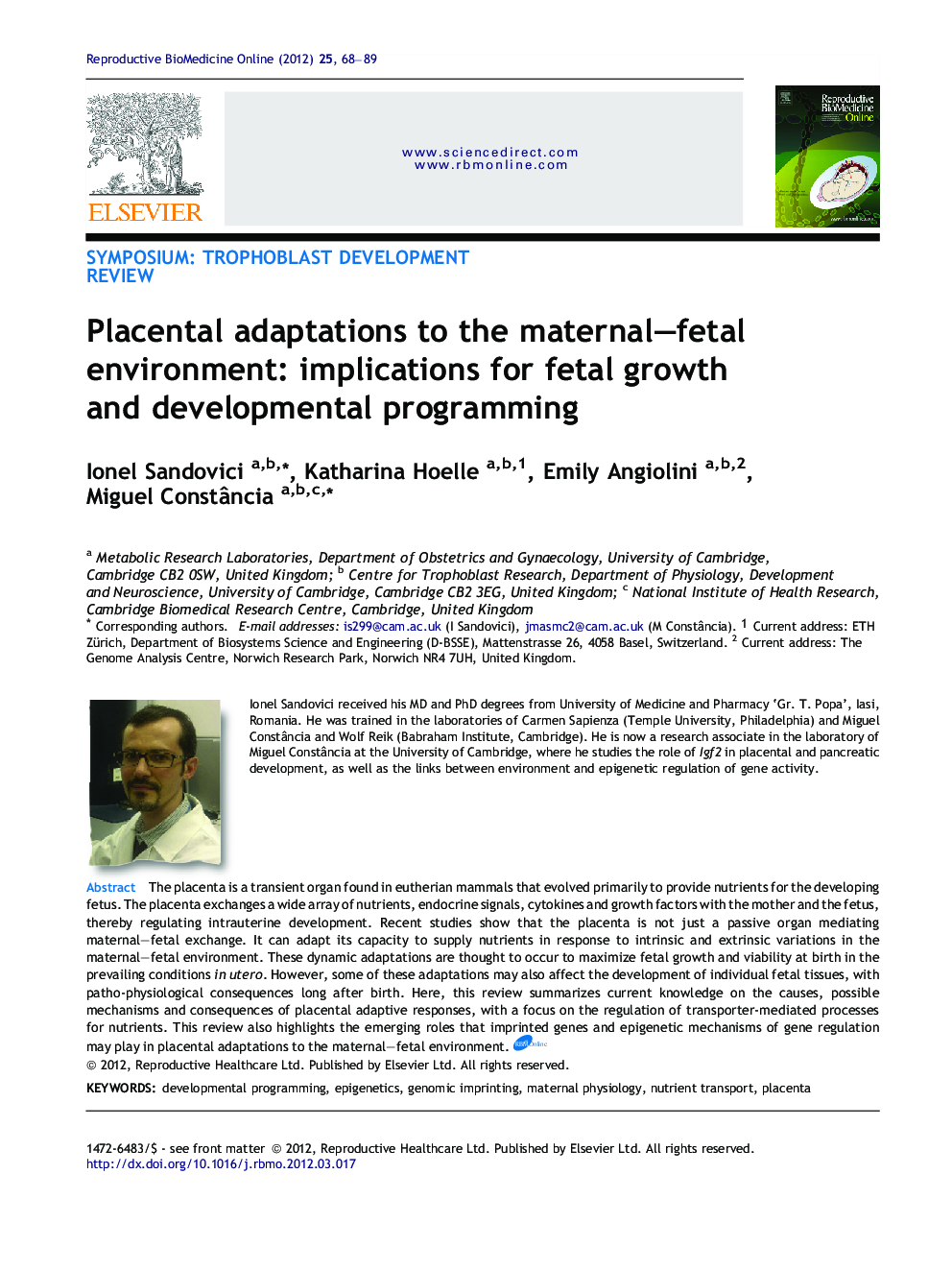| Article ID | Journal | Published Year | Pages | File Type |
|---|---|---|---|---|
| 3970486 | Reproductive BioMedicine Online | 2012 | 22 Pages |
The placenta is a transient organ found in eutherian mammals that evolved primarily to provide nutrients for the developing fetus. The placenta exchanges a wide array of nutrients, endocrine signals, cytokines and growth factors with the mother and the fetus, thereby regulating intrauterine development. Recent studies show that the placenta is not just a passive organ mediating maternal–fetal exchange. It can adapt its capacity to supply nutrients in response to intrinsic and extrinsic variations in the maternal–fetal environment. These dynamic adaptations are thought to occur to maximize fetal growth and viability at birth in the prevailing conditions in utero. However, some of these adaptations may also affect the development of individual fetal tissues, with patho-physiological consequences long after birth. Here, this review summarizes current knowledge on the causes, possible mechanisms and consequences of placental adaptive responses, with a focus on the regulation of transporter-mediated processes for nutrients. This review also highlights the emerging roles that imprinted genes and epigenetic mechanisms of gene regulation may play in placental adaptations to the maternal–fetal environment.The placenta regulates intrauterine development in mammals by performing the function of several adult organs for the growing fetus. These tasks are achieved by a multitude of specialized cell types. Recent work suggests the placenta has the ability to ‘sense’ the maternal and fetal environment and respond to changes in a dynamic fashion. These placental adaptations are particularly important when dealing with suboptimal conditions for growth and development. In this paper, we review the current knowledge on what triggers these adaptations, how the placenta responds to maternal and fetal signals, what these signals might be and what the long-term consequences are for the function of adult organs if the placenta fails to fully adapt. We argue that a special class of genes, so-called imprinted genes, are key regulators of placental adaptive responses to physiological stressors. These genes are different from the rest because they retain information about their parental origin and because they have evolved to be ‘selfish’. They play special roles in the placenta, as we will describe, which include controlling the amounts of maternal nutrients that go across to the fetus and the manipulation of maternal physiology, sometimes in conflict with the mother’s own interests.
